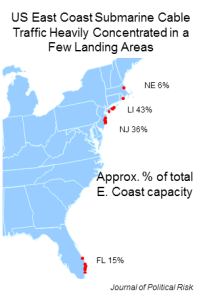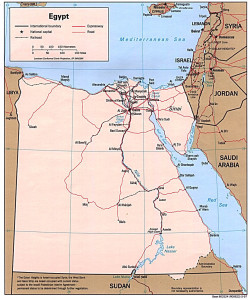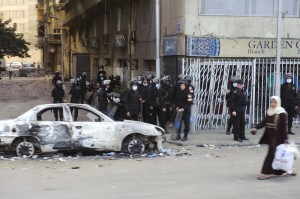Saturday marked the first flight between Egypt and Iran since 1979. The election of Islamist President Mohamad Mursi in Egypt in June 2012 significantly thawed relations between the two countries. Diplomatic ties had been cut by Iran in 1979 when the deposed Shah took refuge in Egypt, but the heads of state from the two countries visited in February and the relationship is now largely mended (Reuters).
President Mursi was a leader in the pan-Islamist movement called the Muslim Brotherhood, which has approximately 600,000 members who pay a percentage of their incomes to the organization. It has members worldwide, and promotes Sharia law and the unification of Arab states. These goals are, incidentally, shared by the terrorist group Al Qaeda. The 2011 popular overthrow of President Mubarak in Egypt served as a strong indicator of the Muslim Brotherhood’s growing power. The US announced diplomatic relations with the group immediately following. Egypt was a strong US ally against the Soviets during the Cold War, and was a voice for stability in the Israeli-Palestinian conflict. The manifestation of the Arab Spring in Egypt, which deposed long-time US ally Hosni Mubarak, has not been kind to US foreign policy goals in the region.
Iran and Egypt are the third and sixth largest Muslim countries by GDP. Iran has a GDP of $522 billion and Egypt has a GDP of $231 billion (United Nations 2011). While the economy is half that of Iran, Egypt will attempt to expand its regional power status in the Arab states, Africa, and closely align with Iran and China.
For indicators of balancing against NATO and tilting away from the US, watch for Egypt joining the Shanghai Cooperation Organization (SCO) as an observer state, as has Iran. Watch for increased commercial relations with North Korea and Iran, and improved diplomatic ties with Pakistan. For indicators of nuclear club aspirations, watch for Egyptian efforts to improve types of nuclear power generation that yield fissile by-products for potential use in nuclear weapons. Also watch for increased Egyptian government links to organizations with likely ties to global terrorism. Egyptian political instability will continue until more authoritarian rule is imposed by either the Islamists or the pro-western faction. Expect further loss of value in Egypt-tied investments, including equities, commercial debt, and sovereign debt. Egyptian oil production is less than 1% of global supply, so there should be negligible effects on oil prices.



